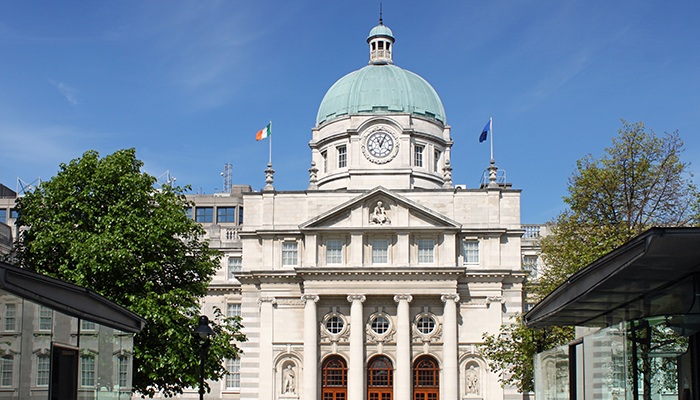web_irish_govement_building_shutterstock_100087538.png

Irish government buildings
The Irish economy was in “good shape” when coronavirus hit, but the health crisis and policy measures created by the crisis have had a huge impact on public finances, the Irish Fiscal Advisory Council said in a report.
Government support has so far included €7bn for healthcare, income support, wage subsidies and cash given to businesses, as well as a further €7bn in loans, guarantees and investments.
However, the Irish Fiscal Advisory Council said it did not expect these measures to have the same economic impact as the response to the 2008 crisis.
“While policy needs may evolve, and policies should be adjusted as appropriate to fit these needs, support should be provided on a large scale for as long as is needed to avoid lengthening and deepening the economic crisis,” the report stated.
“The next phase – the recovery – warrants a sizeable fiscal stimulus,” added acting chairperson of the Fiscal Council, Sebastian Barnes.
The report advocates borrowing to support weak demand during the recovery, and predicts a large deficit for years to come. Government debt could reach near-record levels, with some of the Fiscal Council’s scenarios suggesting debt as high as 160% of GNI this year, up from 99% in 2019.
However, the report projected that it could take between two and three-and-a-half years for the economy to return to pre-crisis levels of activity, depending on how long the pandemic lasts and whether Ireland needs to reintroduce lockdown measures.
By contrast, after the 2008 global financial crisis, it took Ireland 11 years to recover.
With other major uncertainties on the horizon – the risk of a hard Brexit, international corporation tax reform, and possibility of future global trade wars – the watchdog said many economic outcomes remain possible.
But the fiscal adjustment to put the debt-to-GNI ratio on a downward path after Covid-19 “would likely be far smaller and shorter-lived than following the 2008 crisis”, it added.
“While some fiscal adjustment is likely to be needed in the third phase – when the economy settles on a new growth path – severe austerity can be avoided,” said Barnes.
The watchdog said the government would need to adjust its budget plans by €6bn-€14bn from 2023 to 2025 to bring debt down at a reasonable pace – less than half of the €30bn consolidation introduced after the last crash.
“New commitments will likely require reductions in other areas of spending or higher taxes,” the report stated.
“Nonetheless, ambitious policies can still be achieved in areas like health, housing and climate change.”













